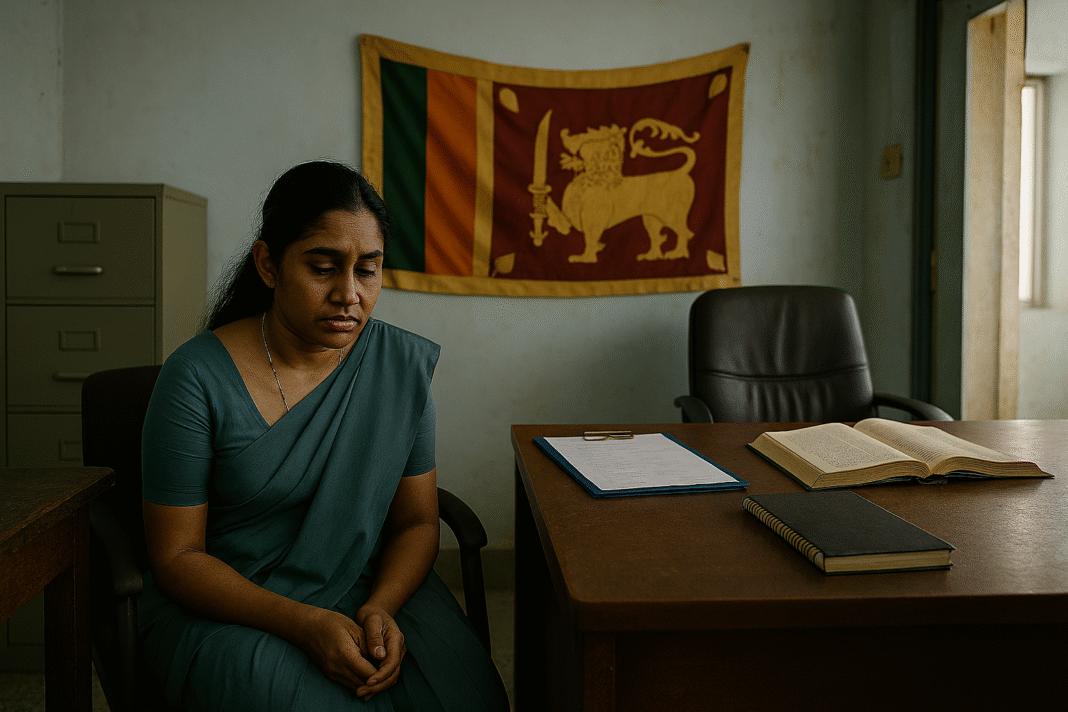“We will not be able to fill the vacancies in rural Sri Lanka until there are vacancies in Australia,”
The war-affected Northern and Eastern Provinces—home to the highest suicide rates in Sri Lanka—are facing a severe mental health crisis, exacerbated by a shortage of psychiatrists due to ongoing brain drain. Specialists serving in these regions are stretched to their limits.
This alarming situation was highlighted by Dr. Sajeewana Amarasinghe, President of the Sri Lanka College of Psychiatrists (SLCPsych), during the inauguration of the College’s 22nd Annual Academic Sessions held in Colombo on August 1.
Speaking on the theme “Bridging Gaps in Mental Health,” Dr. Amarasinghe outlined several pressing challenges:
- The migration of psychiatrists
- A growing child and adolescent mental health crisis
- Insensitive media reporting on suicides
- Rising substance addiction
- The urgent need to pass the long-delayed Mental Health Act
Disturbing Statistics and Regional Disparities
Sri Lanka currently has 108 psychiatrists, including:
- 71 board-certified specialists (via PGIM)
- 37 acting psychiatrists and senior registrars in training
Of these:
- 77 are employed by the Health Ministry (44 board-certified, 33 acting)
- 25 by universities (21 board-certified, 4 acting)
- 6 by the military and Kotelawala Defence University
In sub-specialties, Sri Lanka has:
- 5 Child & Adolescent Psychiatrists
- 2 Forensic Psychiatrists
- 2 Old Age Psychiatrists
Notably, 8 of these 9 sub-specialists are based in the Western Province, leaving other regions underserved.
Dr. Amarasinghe emphasized that the Health Ministry is struggling to fill vacancies in the vulnerable North-East, despite the Mental Health Policy’s mandate that each district should have at least one psychiatrist. The College has worked closely with the Ministry’s Transfer Board to uphold this principle, even at the cost of popularity.
Brain Drain and Urgent Retention Measures
While migration to Australia and the UK has long occurred, the recent economic crisis has accelerated departures to “alarming” levels. Dr. Amarasinghe proposed key retention strategies:
- Government incentives for psychiatrists in regional centers
- Improved salaries and accommodation
- Access to schools for their children
- Support for private practice
- Adequate staffing and medication
- Compassionate administrative attitudes
“Who would want to work in rural Sri Lanka when highly paid jobs await in Australia?” he asked, urging authorities to encourage young psychiatrists to serve locally for at least five years.
Substance Abuse and Legislative Reform
The College has taken a firm stance against proposals to legalize cannabis and produce low-cost alcohol. It continues to advocate for the swift enactment of a new Mental Health Act, which Dr. Amarasinghe stressed is long overdue.
Child Mental Health Crisis
A major concern is the rising mental health crisis among children. In 2024, there were 80 reported child suicides. According to the Global School-based Student Health Survey 2024:
- 15% of children reported suicidal ideation
- 6.8% had attempted suicide
A joint College–UNICEF survey revealed urgent gaps in child psychiatry services. Dr. Shreenika Weliange emphasized the need to strengthen the Child and Adolescent Mental Health Service. The College’s Friendly School Programme, in collaboration with the Health Ministry, uses a multidisciplinary approach to train school leaders and improve mental health awareness.
Working with the Prime Minister’s Office, the College is also advancing proposals to:
- Reduce academic stress and homework
- Limit social media use among children
- Train school counsellors and teacher trainees
- Promote mental health education
Media Sensitivity and Awareness
Dr. Amarasinghe criticized the insensitive reporting of high-profile child suicides by some media outlets. To address this, the College held a joint press conference with the Sri Lanka Medical Association (SLMA) and conducted a two-day workshop with the Mental Health Directorate to train journalists on responsible reporting.
With the inputs from an article by By Kumudini Hettiarachchi on the Sunday Times.
